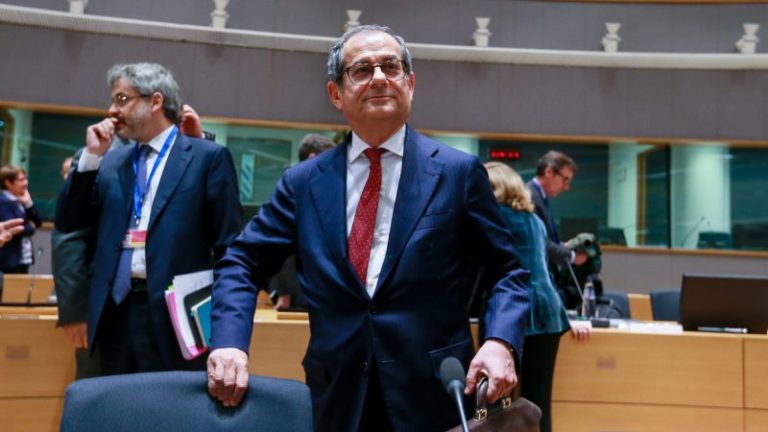Italy defied Brussels again on Tuesday (13 November) as Finance Minister Giovanni Tria presented only a slightly modified draft budget, despite the European Commission rejecting the previous spending plan in an unprecedented decision.
The fresh Italian draft budget arrived 22 minutes late at 00:22 am according to EU sources and barely differs from the previous text.
The only novelty this time is the government’s decision to raise the objective of privatizing public assets to 1% of GDP by 2019.
Tria argued that the privatization effort constitutes “a safety margin to ensure that the debt reduction targets approved by parliament are achieved”.
But those targets were rejected by the Commission in its previous assessment in October, which was later backed by other members of the eurozone.
The new text confirmed the 2.4% deficit for 2019, which the government considered “an insurmountable limit”.
This involves structural deterioration amounting to 0.8% of GDP, and an “unprecedented breach” of the fiscal pact, according to the Commission.
Nevertheless, the Italian government defended again its decision to present an expansive budget. “The government remains confident about the possibilities of achieving the growth targets,” Tria said.
More flexibility
Rome has once again called for flexibility within the EU fiscal pact for “exceptional events” given recent floods that hit the country and the collapse of the Morandi Bridge in Genoa during the summer.
Tria argued that 0.2% of GDP will be invested in an extraordinary plan to combat hydrogeological instability, as a response to the floods, which killed over thirty people.
The Italian authorities also insisted that the deadly collapse of the Morandi Bridge, which killed a dozen people, “highlighted the need to undertake an extraordinary maintenance programme”.
In 2019, €1 billion will be allocated to improve the safety and maintenance of road network infrastructures. “The plan will be treated as an emergency intervention,” Tria explained.
Both the Commission and the other EU member states will have to assess the request.
According to the Commission, Italy has been the main beneficiary of the flexibility by around €30 billion between 2015 and 2018, intended to support Italy’s response to security threats, the refugee crisis and earthquakes.
Read more HERE
Ask me anything
Explore related questions





